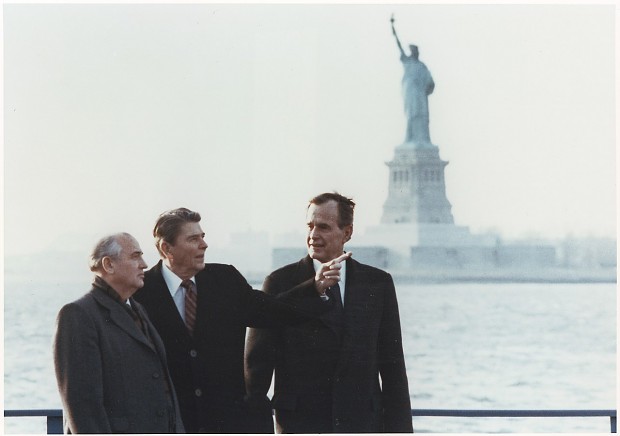CWE brings Victoria 2 into the Cold War era and beyond. This is the ultimate Cold War mod with a slew of special features such as ideological blocs, dynamic international institutions and decolonisation chains to accurately simulate the Cold War and Post-Cold War world.
When Ronald Reagan entered the White House in 1981 he had a clear mandate to pursue a tough policy toward the Soviet Union. During the Reagan presidency, however, U.S.-Soviet relations changed dramatically, from the incipient cold war of the early 1980s to the summit meetings and agreements of the last four years. George Bush has said that he will try to ensure that U.S.-Soviet relations continue to improve. But the task he faces is more subtle than that which Ronald Reagan set himself, for he has to assess the meaning of Mikhail Gorbachev's new thinking and its implications for the United States.
Under Gorbachev's leadership the Soviet Union has embarked on major domestic reforms and proclaimed the need for new political thinking in international relations. This new thinking, which Gorbachev set out most recently last December in his speech to the United Nations, embraces a number of propositions about the nature of international relations in the modern world: human interests take precedence over the interests of any particular class; the world is becoming increasingly interdependent; there can be no victors in a nuclear war; security has to be based increasingly on political rather than military instruments; and security must be mutual, especially in the context of U.S.-Soviet relations, since if one side is insecure it will only make the other side insecure too.
This new thinking rejects many basic assumptions of earlier Soviet foreign policy, and should be understood primarily as a response to the crisis in foreign relations to which Leonid I. Brezhnev's policies had brought the Soviet Union by the early 1980s.






